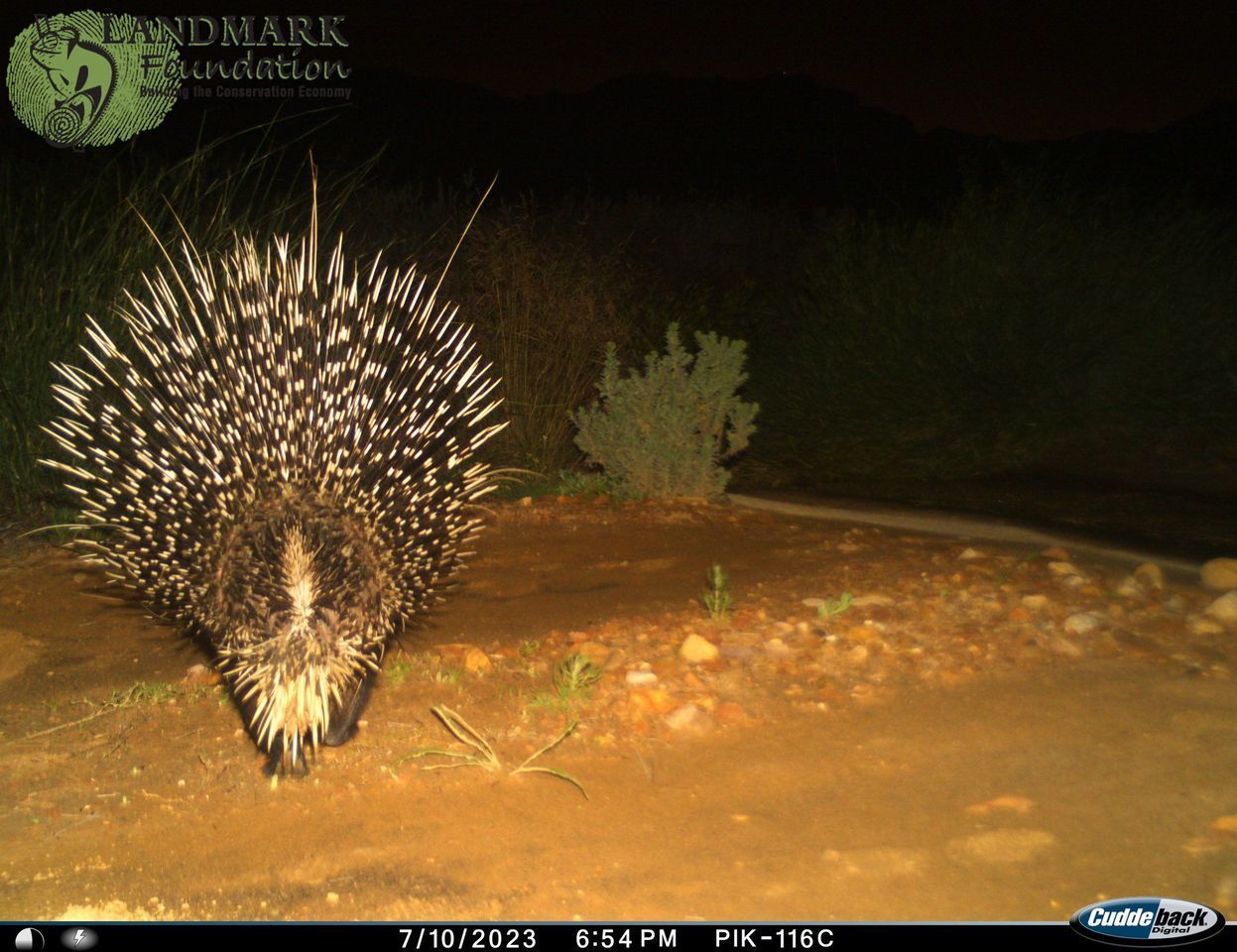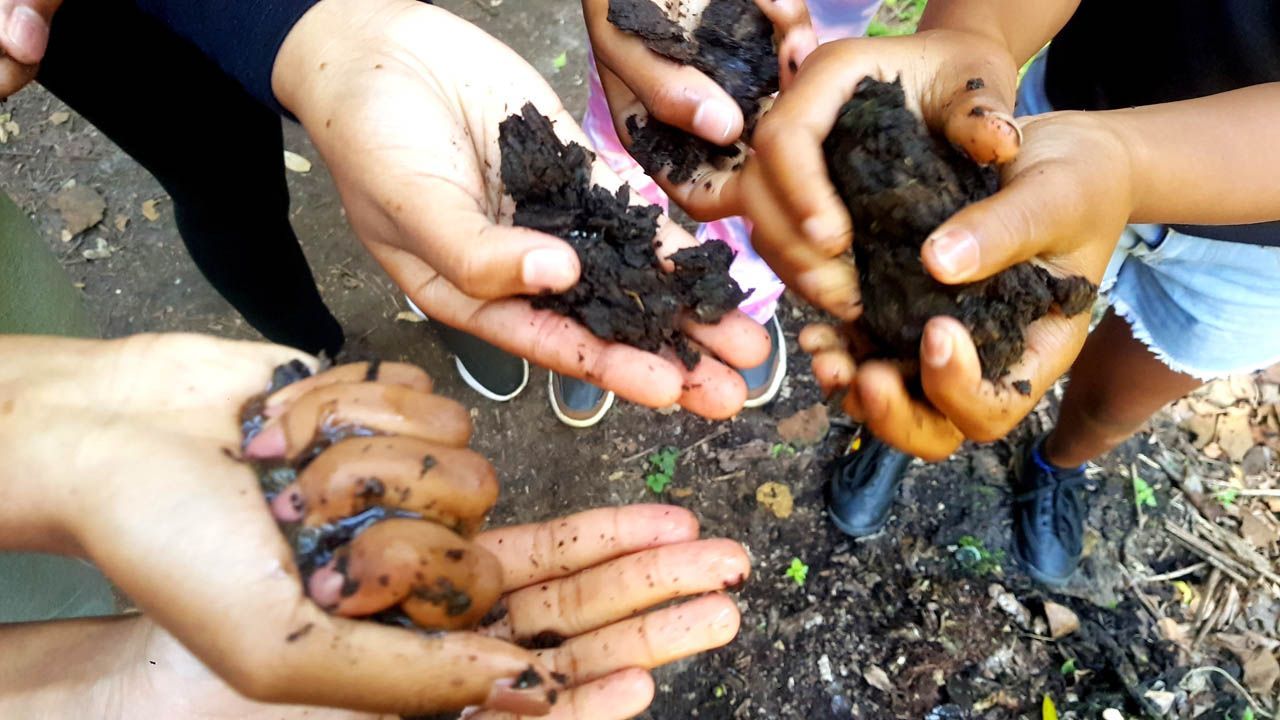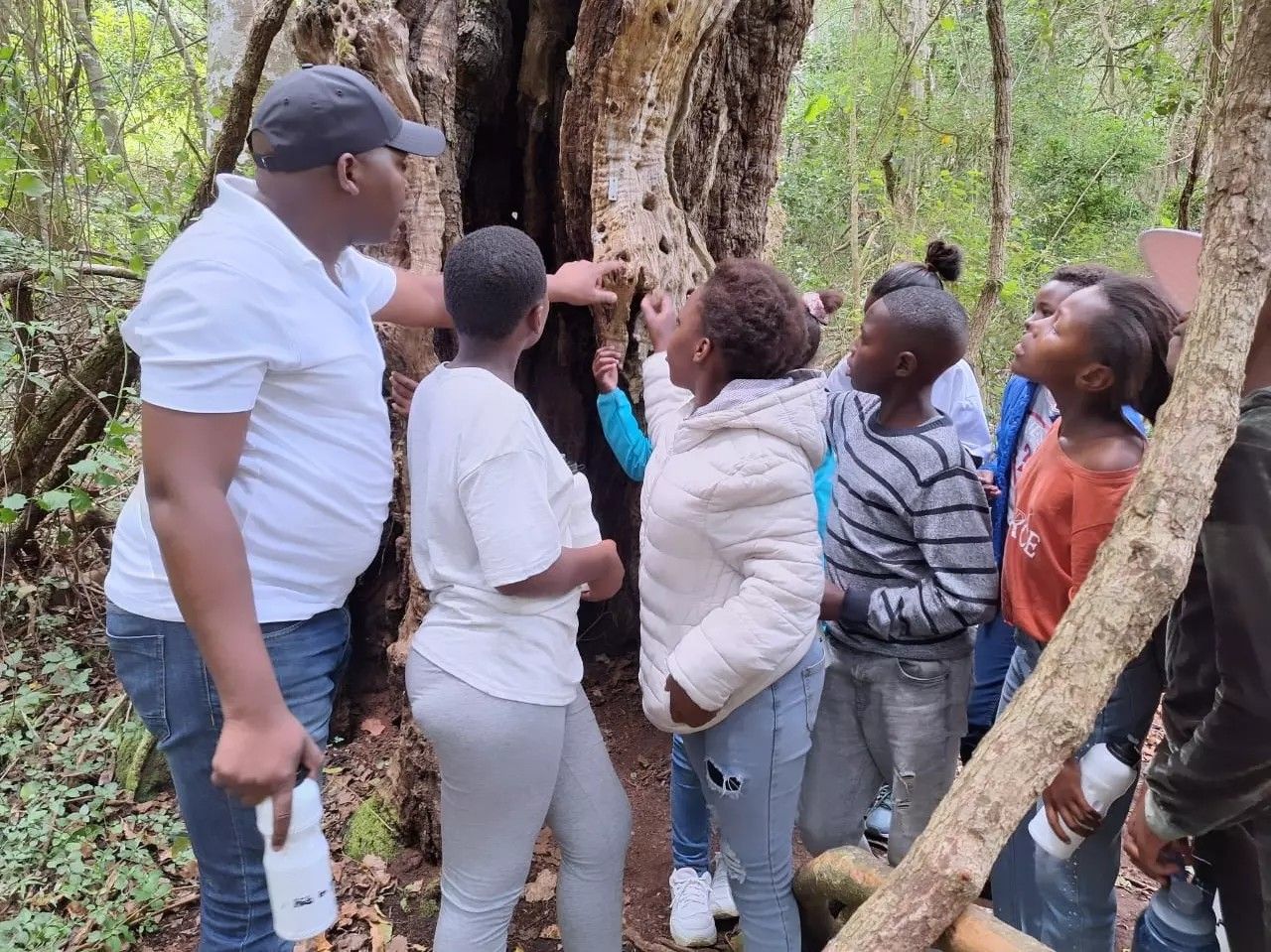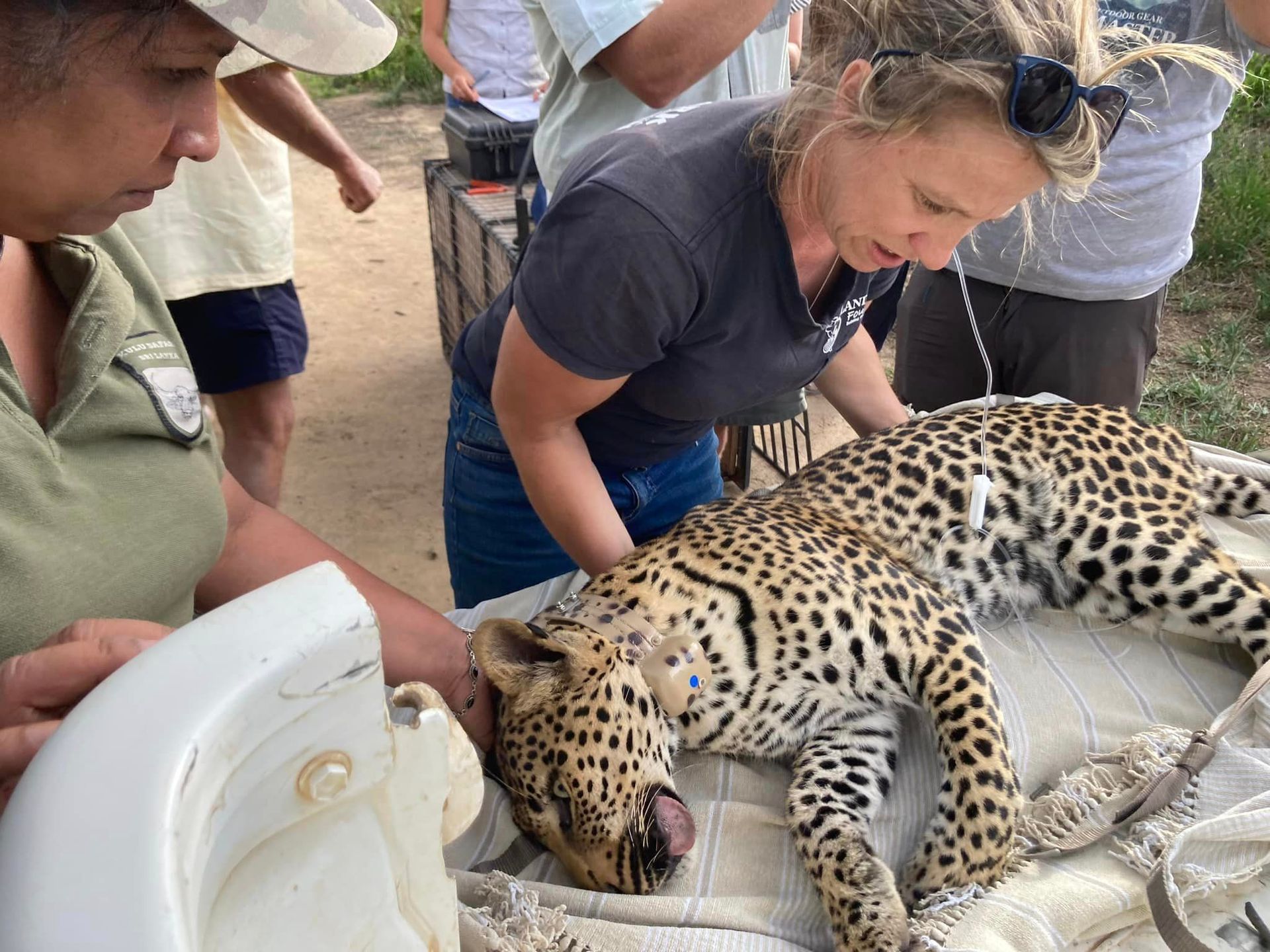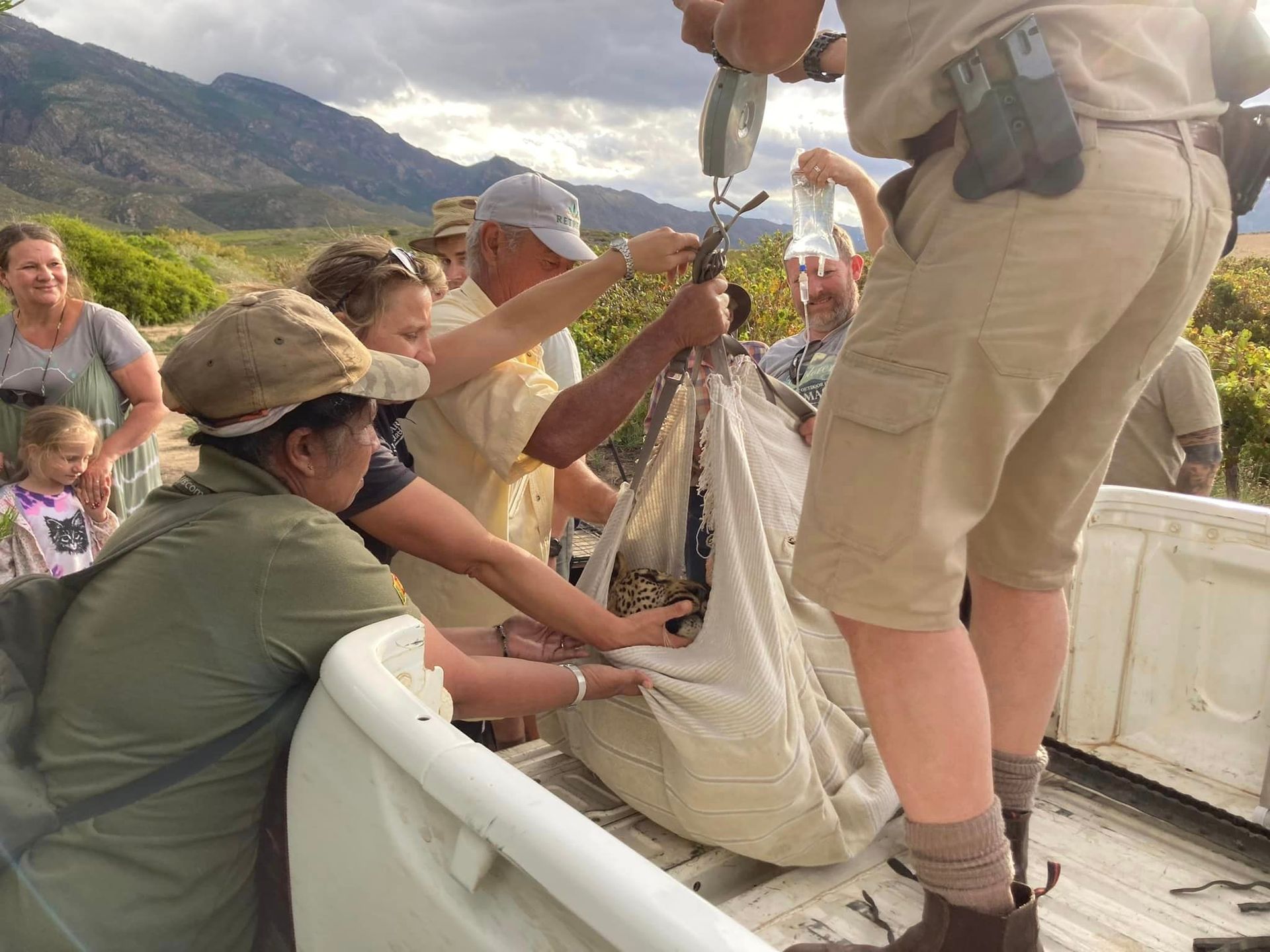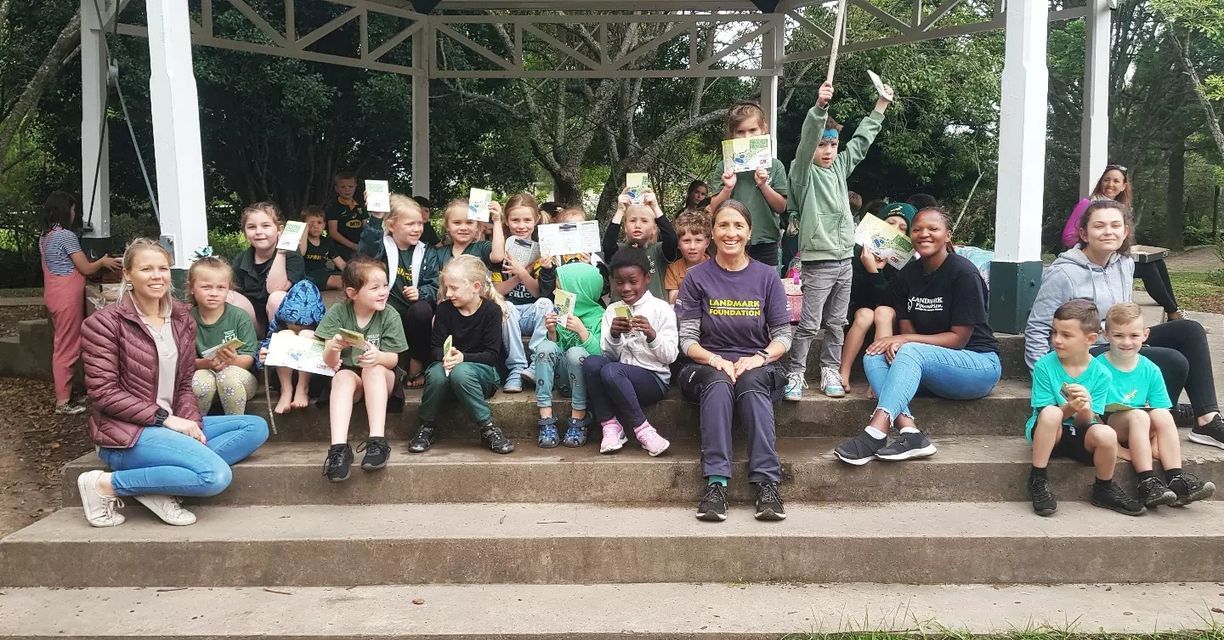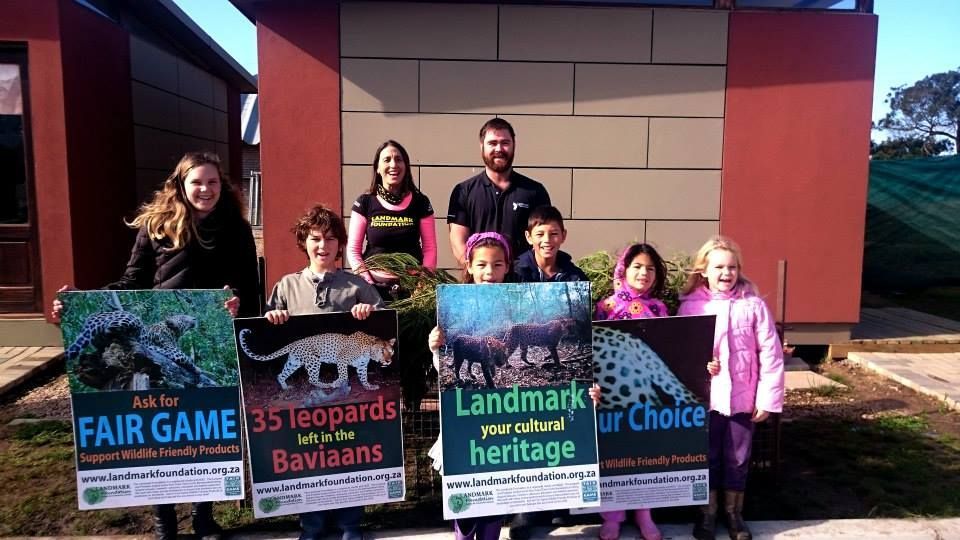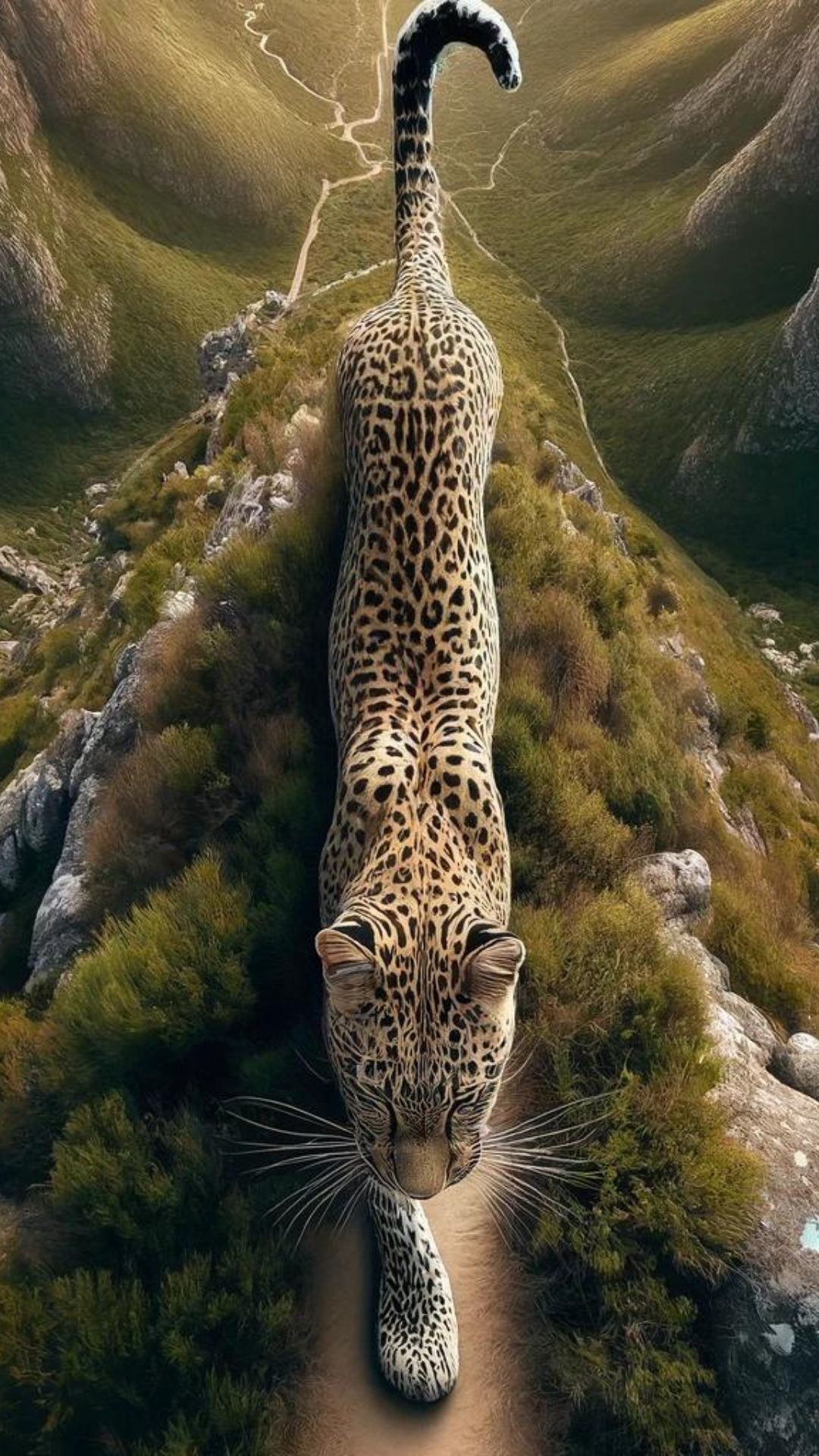Dedicated to conserving Southern Africa’s natural landscapes since 2004.
Conserving Our Heritage
In the heart of Southern Africa, amidst its sprawling savannas, the arid zone habitats (Succulent and Nama Karoo), Fynbos, Thick biome, lush temperate forests, and rugged mountains, the Landmark Foundation was born in 2004 with a singular vision: to harmonize the coexistence of humanity and nature. Driven by the ethos of Ubuntu - "I am because we are" - our journey is a testament to the belief that the conservation of our natural heritage is inseparable from our future.
OUR MISSION
At the Landmark Foundation, our mission is to conserve and protect South Africa’s wildlife, focusing on apex predators like the Leopard, whose plight is encompassed in the plight of other species and their habitats. We believe in a holistic approach that integrates science, community engagement, and policy advocacy to create sustainable ecosystems.
Conservation Economy: A Vision for the Future
In envisioning a world where the ecological integrity is the foundation of the economy, we aim to redefine the relationship between humanity and nature.
The Landmark Foundation believes that only where we have a healthy environment can we have social, political and economic equity and justice.
In creating a viable conservation economy that sustains our natural landscapes, supporting both ecological integrity and community prosperity, will we attain societal justice.
Our commitment is to turn conservation into a catalyst for economic development, benefiting both the planet and its people.
W H Y L A N D M A R K F O U N D A T I O N
OUR APPROACH AND OUR WORK
Our approach is rooted in the interconnectedness of all life forms. From the wide-ranging species such as leopards and the habitats they roam, to the classrooms where future conservationists are made, our projects span diverse areas to ensure comprehensive conservation.
Threats and Solutions: Addressing the Challenges Head-On
The pristine beauty of Southern Africa's landscapes faces threats from all sides, primarily due to irresponsible human activities.
These actions, often driven by short-term gains, risk the very essence of our region's ecological and aesthetic value.
We're here to implement a landmark change, advocating for responsible land use and pioneering solutions that ensure the long-term conservation of biodiversity.
Through research, community engagement, and strategic partnerships, we're paving the way for sustainable coexistence.
Our Impact 🏹
Over the years, our commitment has turned into actionable change. The Landmark Foundation proudly stands behind a legacy of:

Expanding Protected Habitats:
Expanding Nature Reserves: Safeguarding vital ecosystems to ensure the survival of wildlife and the health of our planet.

Empowered Communities
Building Sustainable Futures: Collaborating with local communities, and enabling changemaking to promote sustainable practices and economic development.

Rescued Wildlife
Reviving Species:
Providing sanctuary and rehabilitation for leopards and other endangered species, granting them a second chance at life, and facilitating coexistence

Informed Conservation Policies
Policies and Administration
Shaping the Future:
Influencing conservation strategies and policies through pioneering research and advocacy.
Commitment to Change: Our Ethical Pledge
Our foundation's ethos is built on unwavering ethical standards and integrity in our environmental interaction. Founded in 2004, The Landmark Foundation operates as a registered Charitable Trust and a Not-for-Profit Organization, committed to transparent and accountable conservation efforts. We believe in acting without fear or favor, ensuring our allegiance is solely to the cause of conserving Southern Africa's irreplaceable natural heritage.
Our team
At the Landmark Foundation, our team is driven by a shared commitment to conservation and sustainable development. Each member brings unique expertise and a passion for preserving biodiversity and fostering human-wildlife coexistence.
Dr Jeannine McManus (PhD)
ACTING DIRECTOR, AND RESEARCH DIRECTOR
Dr. Jeannine McManus completed her MSc in Zoology at Rhodes University and her PhD in Ecology at the University of Witwatersrand. Currently a research fellow at the University of the Western Cape, Jeannine specializes in ecological restoration, conservation biology, and human-wildlife coexistence. Her research spans various disciplines, including population genetics and landscape wildlife connectivity. Leading the Landmark Foundation’s research efforts, Jeannine is dedicated to generating evidence-based insights to inform policy decisions and best practices for conservation.
Dr. Lauriane Faraut (PhD)
RESEARCHER AND FIELD MANAGER
Dr. Lauriane Faraut earned her PhD from the German Primate Centre, where she studied the influence of social systems on communication and cognition in primates. She has held research manager positions with various universities, including the University of Lethbridge and the University of Wisconsin-Madison. Lauriane joined Landmark Foundation as an ethology expert, focusing on the behavioral ecology of primates and other wildlife, contributing her extensive knowledge to field management and research.
Dr Bool Smuts
GENERAL MANAGER
Dr. Bool Smuts is a seasoned Environmental Manager, Project Manager, Fundraiser, and Medical Doctor. With a B.Sc., MBChB, DCH, and MPhil in Environmental Management, Bool Smuts brings a wealth of expertise in sustainable development, socio-economic development, and environmental auditing. His special interests include renewable energies, protected areas development, tourism, species conservation, and conservation economy development. Bool focuses on initiating large projects and innovative models to expand, consolidate, and manage conservation areas and related socio-economic initiatives.
Monica Vaccaro
Education Program Manager.
Monica has three decades experience in environmental education and conservation advocacy. She heads up the Landmark Foundation’s education program, focusing on engaging schools, pre-schools and young adults in core fieldwork areas. She conducts talks, activities, and holiday programs, developing sustainable environmental education nodes. As an art teacher and professional photographer, she brings creativity and inspiration to her role, fostering a deep connection between students and the environment.
Expert Panel:
ButtonDr. Louise Boronyak
At the Landmark Foundation, our mission to protect Southern Africa’s wildlife and promote sustainable coexistence between humans and nature is driven by our strong partnerships with a diverse array of expert stakeholders. We collaborate with leading conservation organizations, academic institutions, government agencies, and private entities to leverage their expertise, resources, and support. These partnerships enable us to implement innovative conservation strategies, conduct groundbreaking research, and deliver impactful educational programs. By working together, we ensure that our efforts are comprehensive, scientifically sound, and effectively address the complex challenges of biodiversity conservation. Through these collaborative endeavors, we are able to achieve our goals and make a lasting difference in the protection of our planet's natural heritage.
Current and Past Students
Carolyn Devens
Specializes in spatial ecology and density of leopards.
Erin Jooste
Researches caracal ecology in various land use zones in the Karoo.
Kamila Jandová
Focuses on the spatial ecology and resource selection of leopards.
Chris Hasselerharm
Uses innovative technologies to monitor ecological changes.
Registration and Trust Transparency
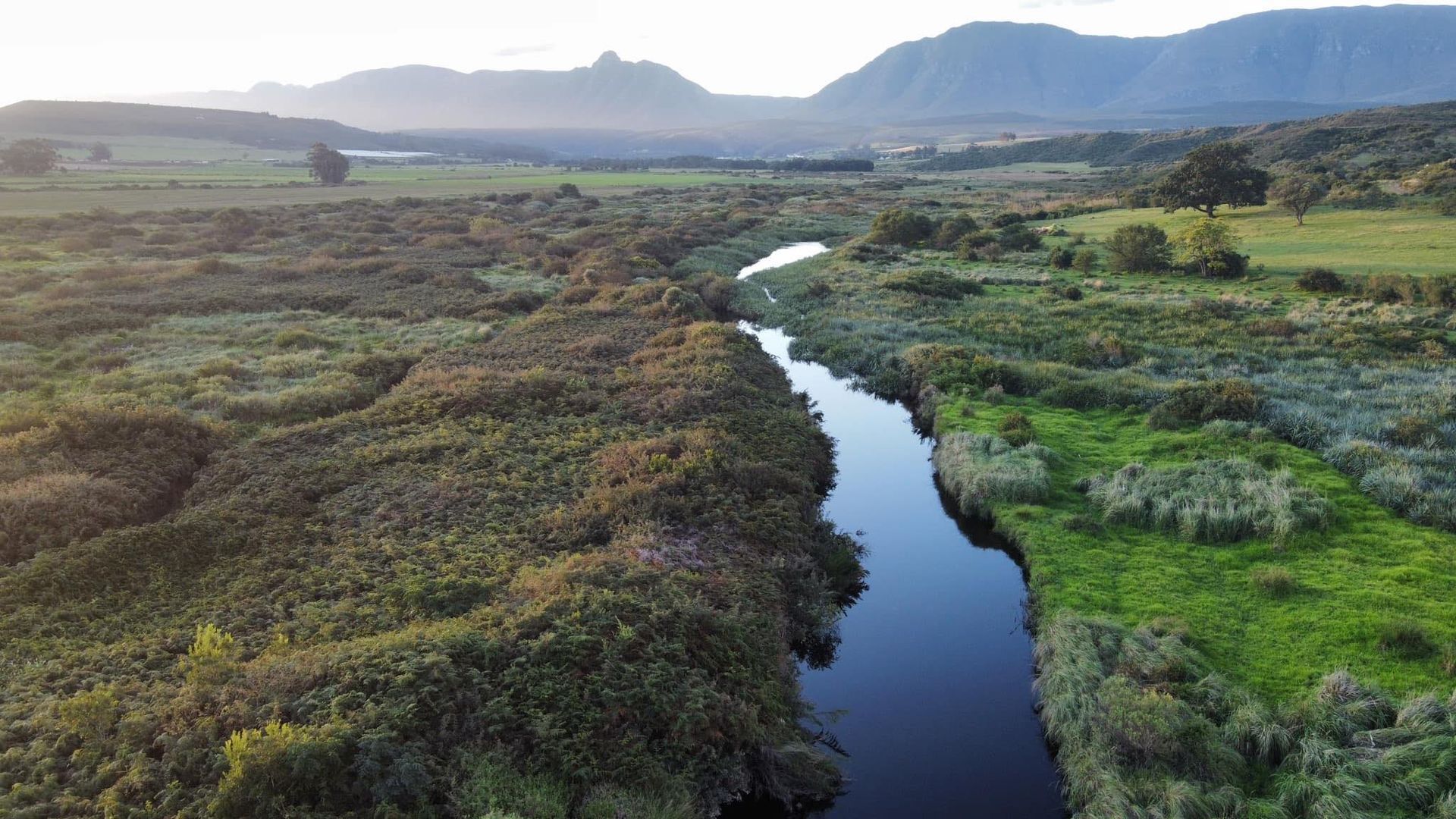
As a beacon of trust and commitment, The Landmark Foundation is proud to be recognized as a tax-exempt charitable entity (18 A Exemption), audited annually and governed by a dedicated Board of Trustees.
Our registration details (039 – 416 – NPO) underscore our dedication to legitimate and impactful conservation work across Southern Africa.
